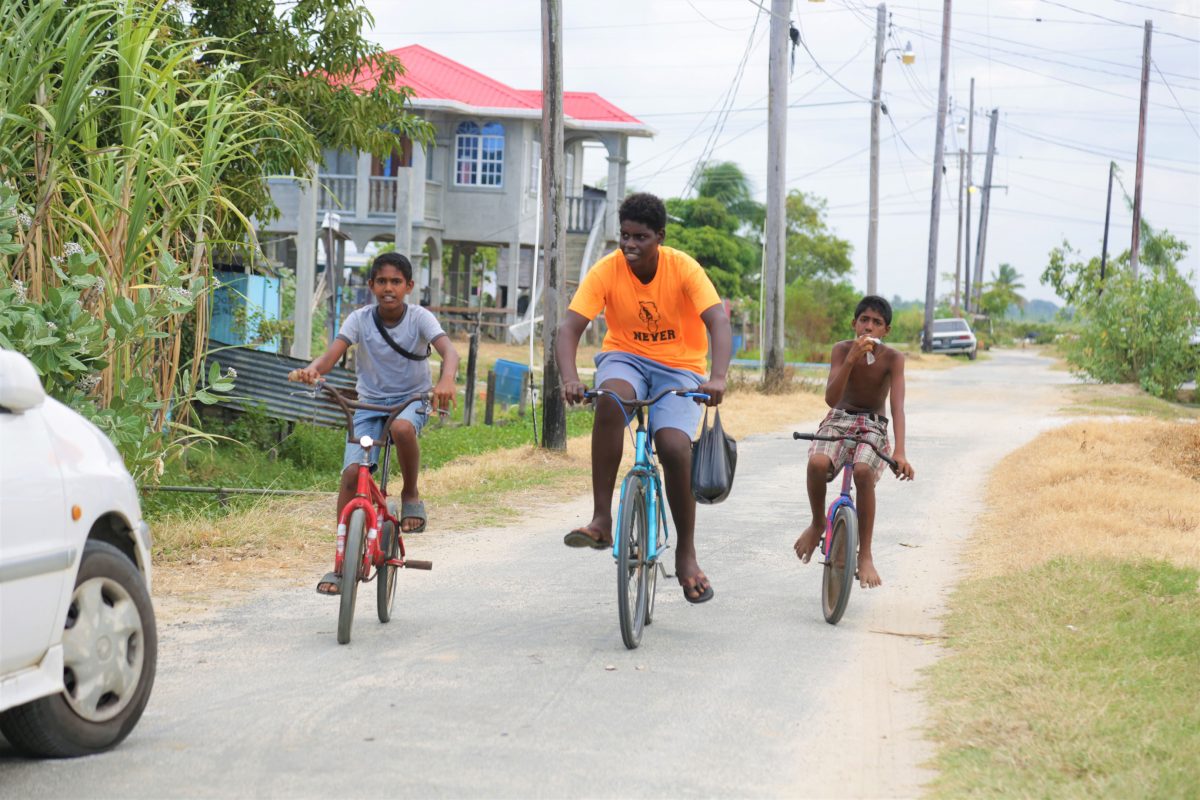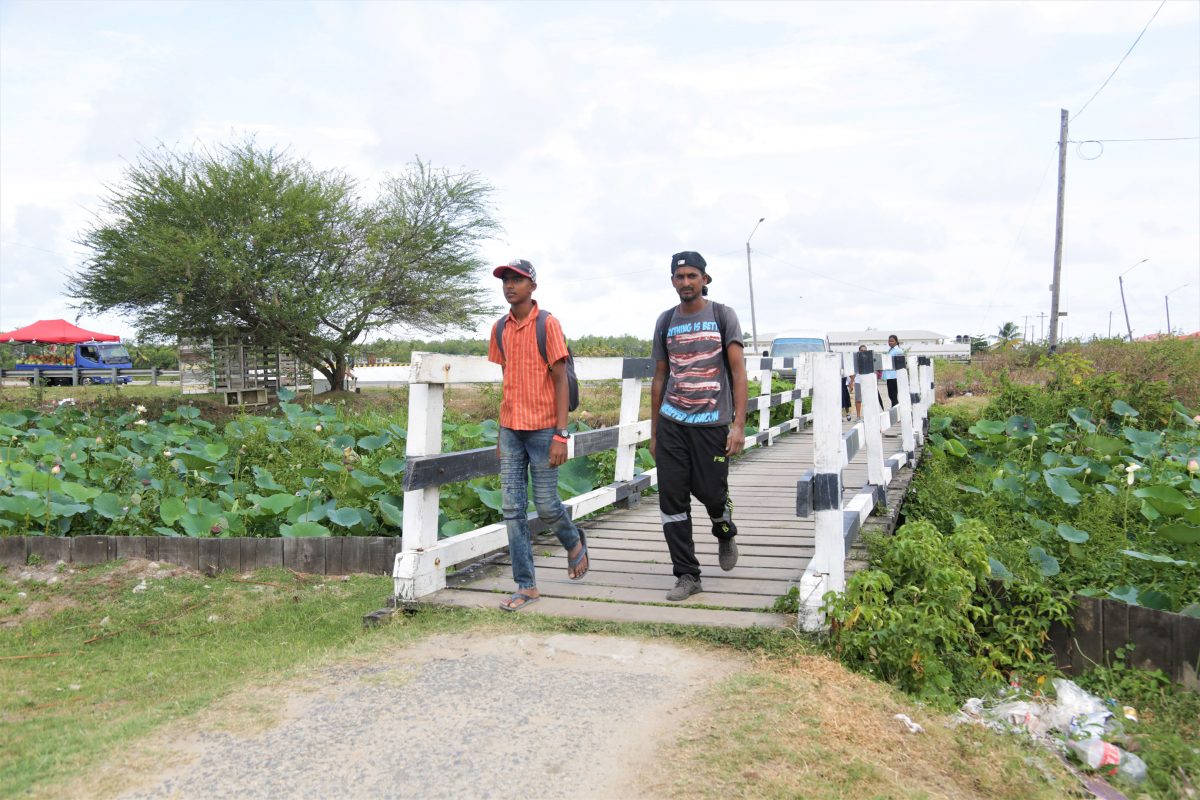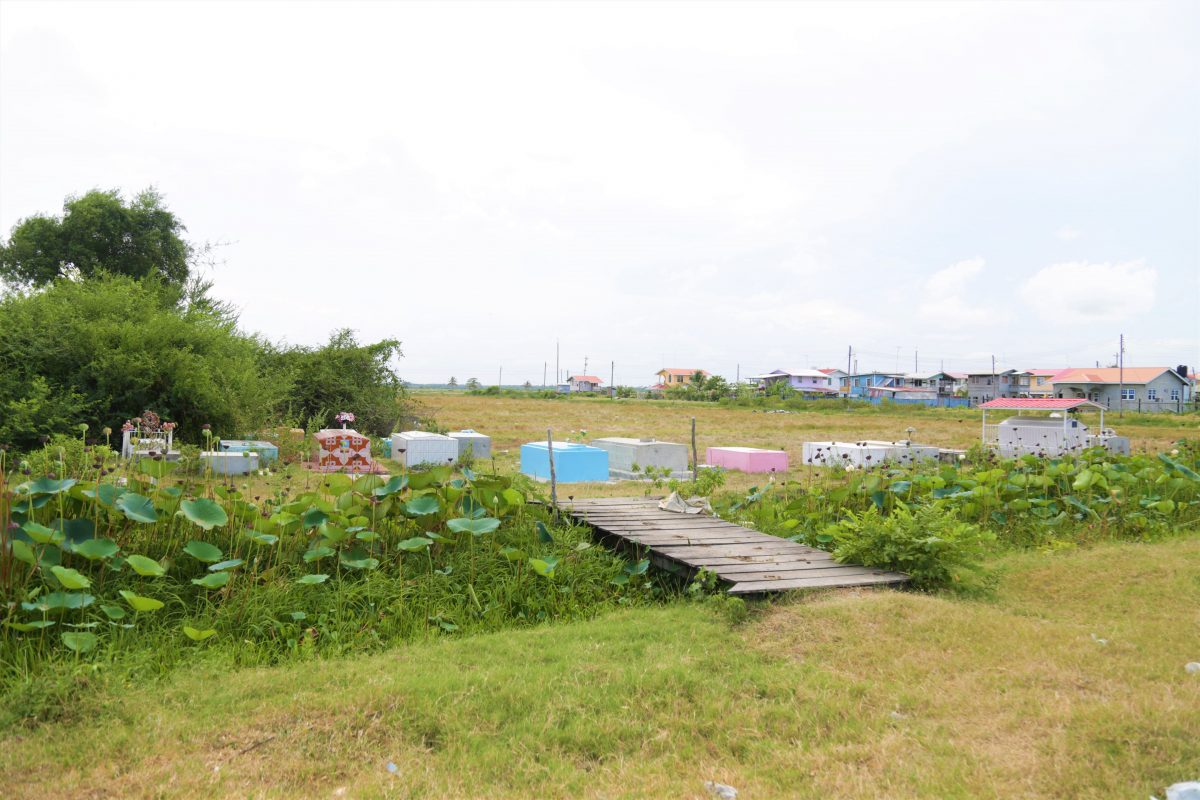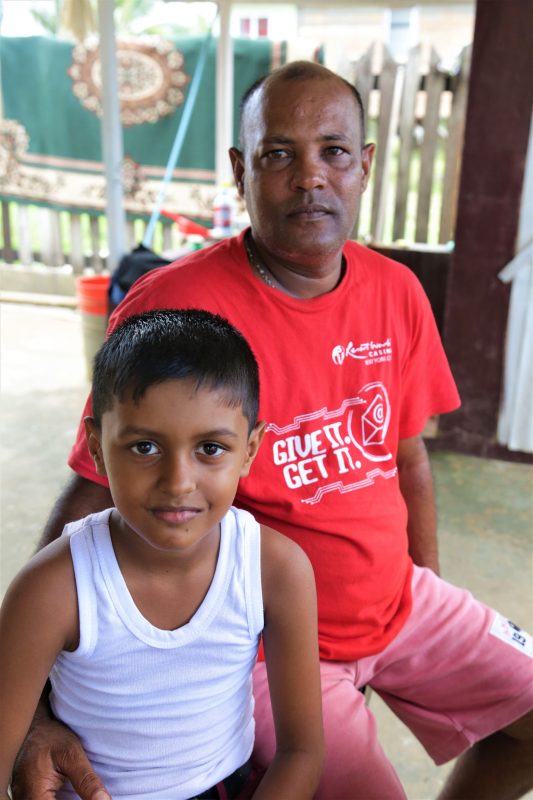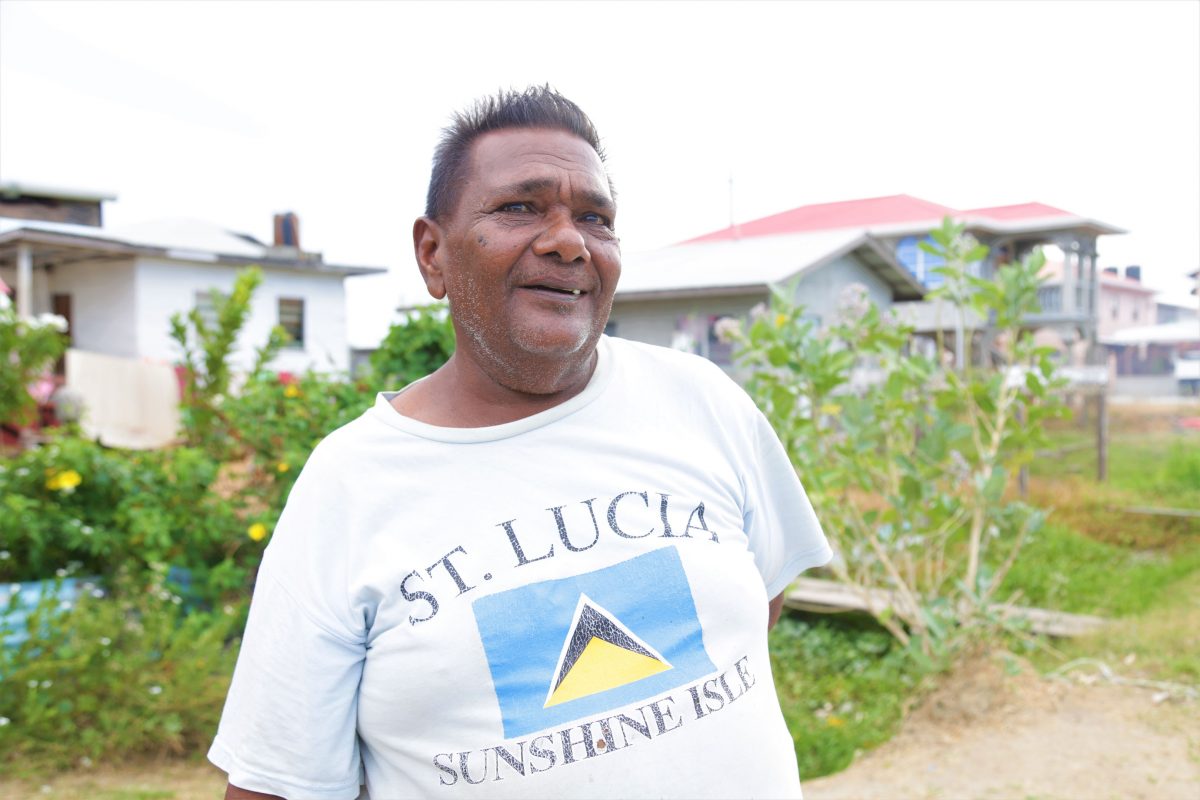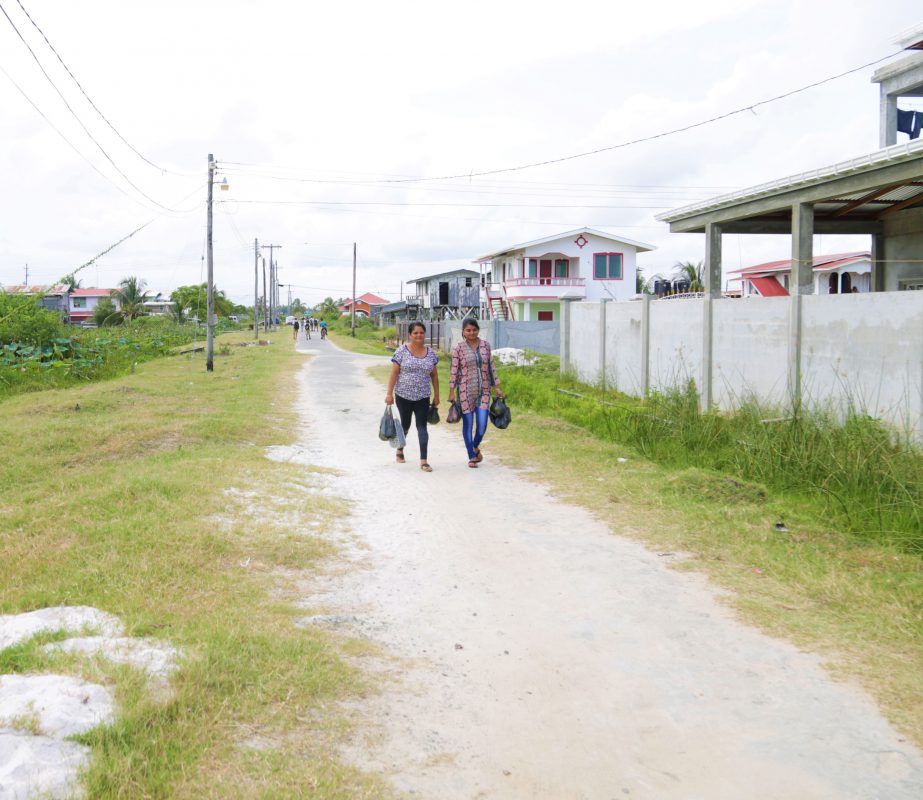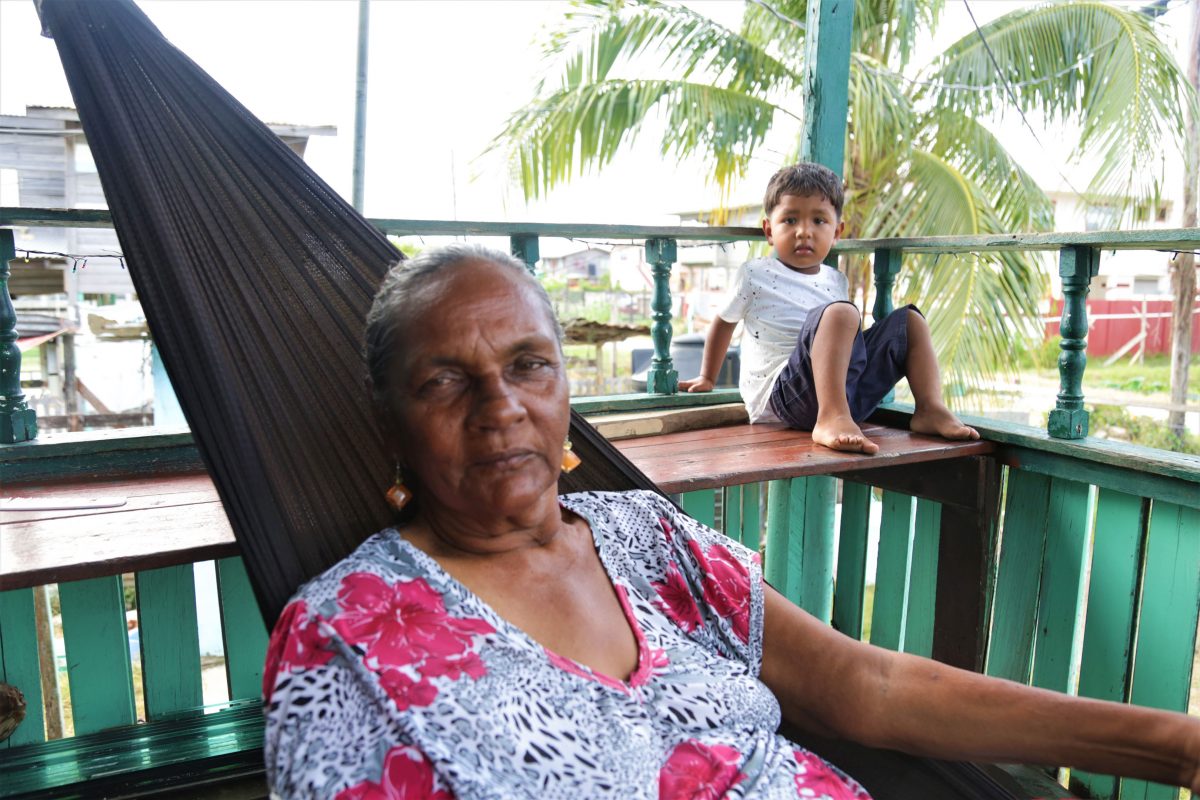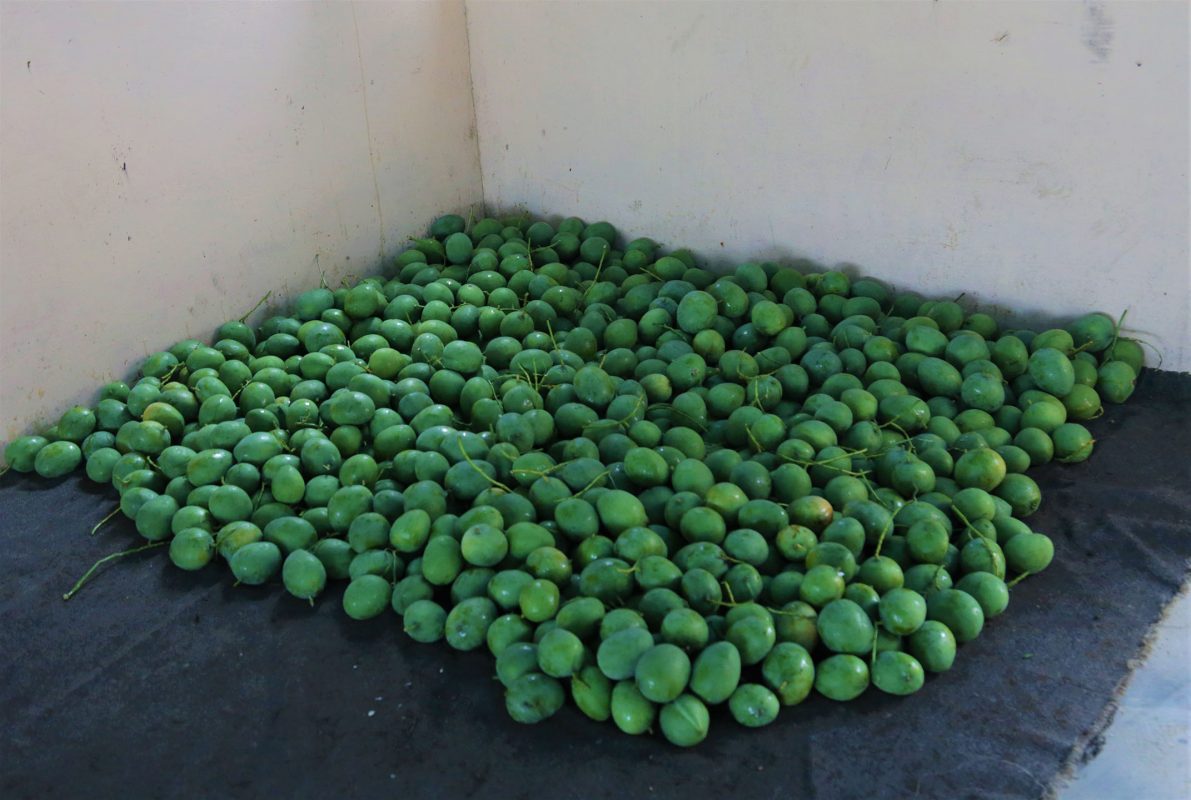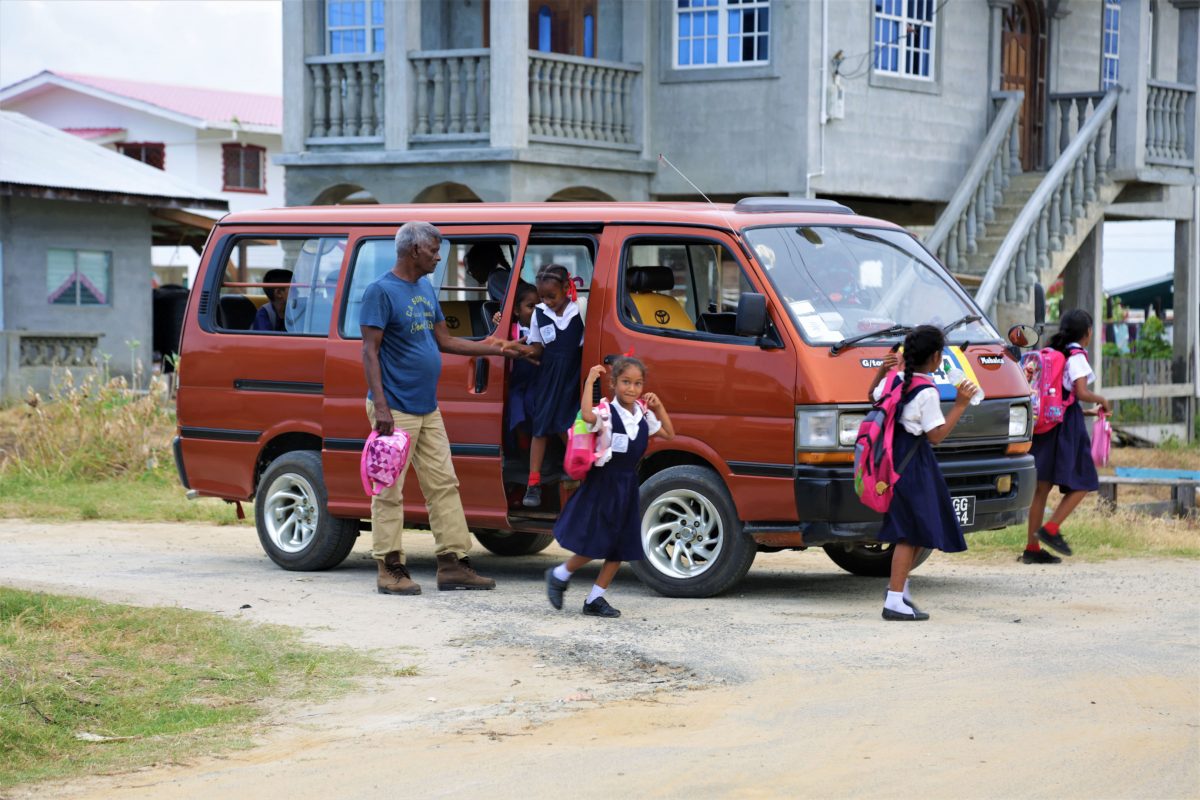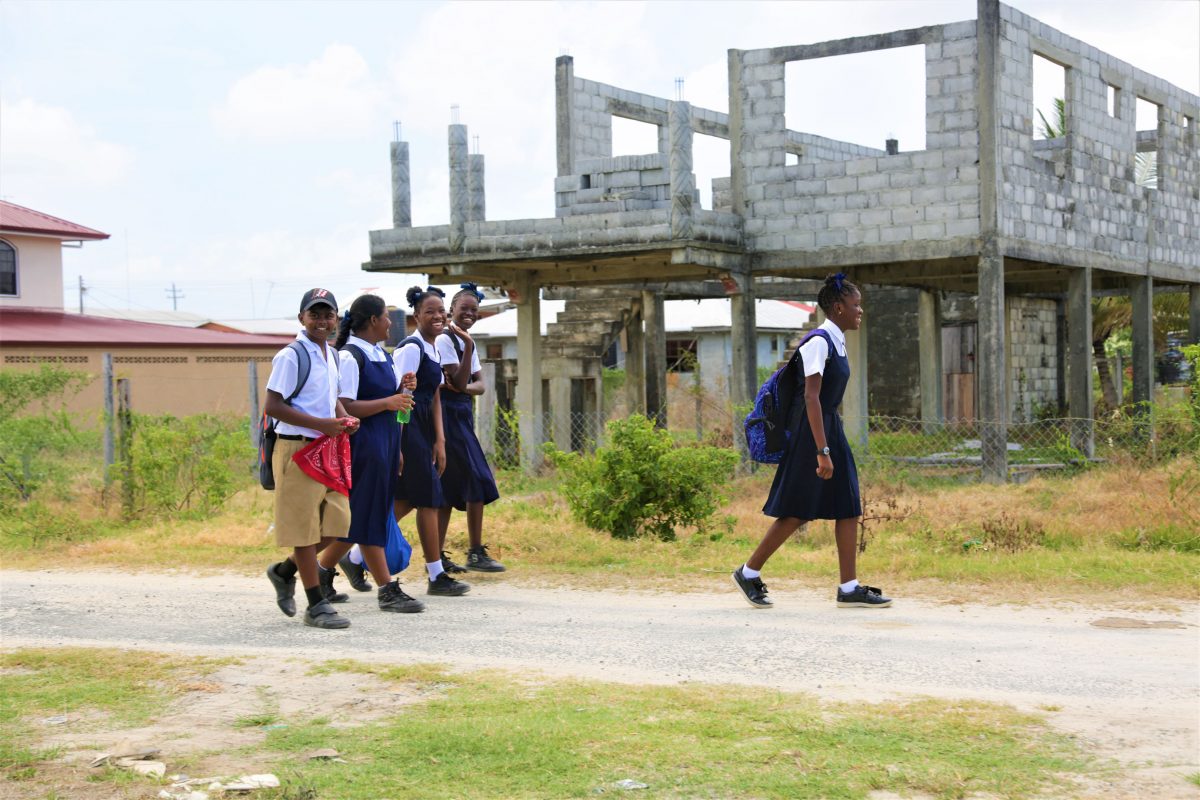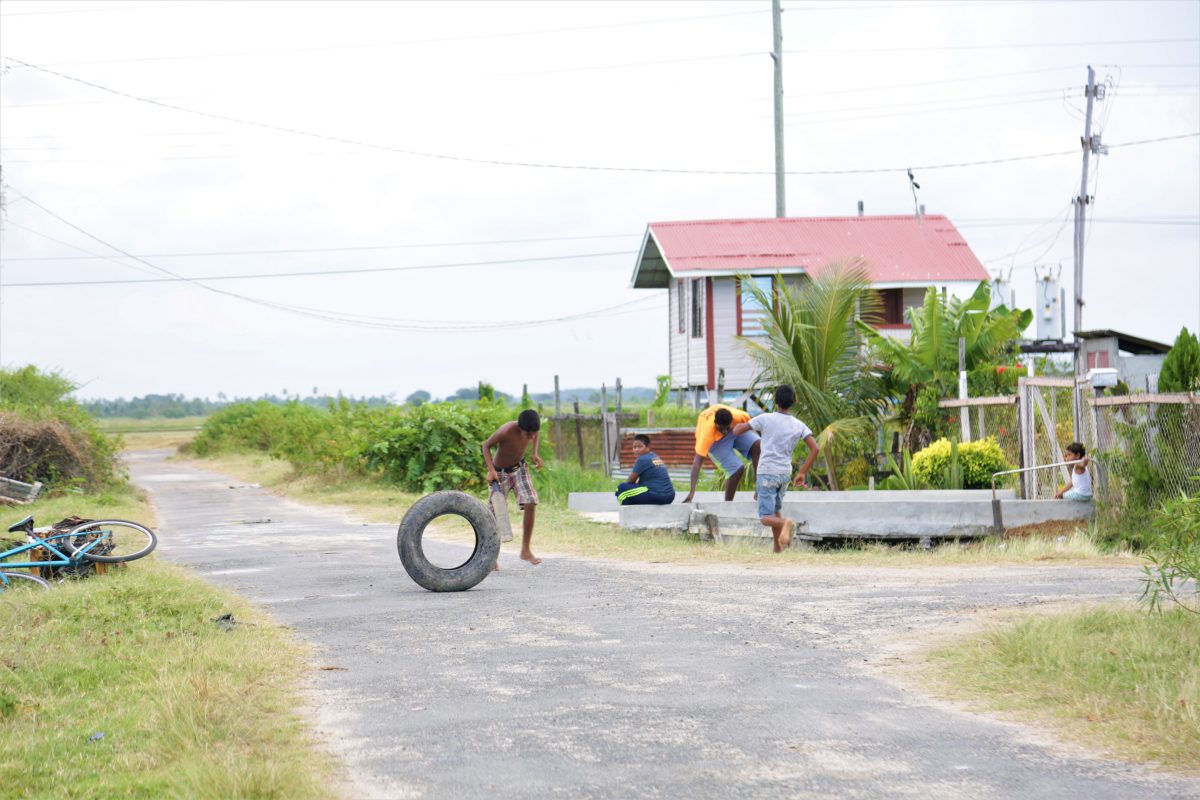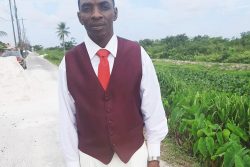Formerly rice fields, Lowland, Hope, on the East Coast Demerara, is home to hundreds of people, many of whom depend on fishing for their livelihood. The community has reportedly been in existence for 15 years now.
Lilia Haniff settled in Lowland some 14 years ago after leaving her home in Beehive. Years before, her parents and grandparents worked in the rice fields where she now lives.
“When me come in here, was just two or three house in me section, but in me street was just me alone went living here,” Haniff said. “It was very difficult to live here when I did just move because the road wasn’t perfect and then the same week I come in here and live is the same week the rain fall, and we get a big flood. It wasn’t the 2005 flood. I come in 2005, but later in the year in November. Here does get flood steady.
“From the beginning since I was a small girl in Beehive, me mother them used to come with train. It had a crane [excavator] been deh pun the line top deh and them does drop out deh and them does come cut rice right here in Lowland. When them done cut them does ketch the night train and go home back. The train was so beautiful; how I sorry that the train come off. I wish if the train was still running. The train used to work nine o’clock, ten, one, five, six and eight o’clock. My parents used to ketch the six o’clock train so they meet home like half past six.
“I never used to come with them. I would be at home and help do the cooking in the afternoon and finish by the time them reach home because I know them weary. At the time, I was like 12. I coulda cook rice and any kinda curry. I start cooking since I was 7. But when I reach big like 11 and it start get late fuh them come home, me sorry fuh me mother and suh one afternoon I decide me gon cook the rice but me couldn’t tell when it gon done so I call over me neighbour. Me beg she fuh see if the rice done fuh me. Me got some daughter, from 7 years them start cook.”
With no electricity or potable water for the first few years, Haniff depended on the rain and the black water from the canal some distance away. The water from the canal was used for almost everything, including cooking, while the rainwater was saved for drinking. Back in those days too, Haniff said, the water in the drains was fresh and always kept clean. On days when they felt like having sweet water fish, they only had to go as far as the drains, but not today as the drains are hardly ever cleaned and pipelines from septic tanks empty into them.
When she moved to Lowland, Haniff was employed with the City Council as a maintenance worker cleaning the drains and grass around the parapets in Georgetown. She worked with the council for 18 years. After that, she purchased fish and sold around the villages and was known as “the fish lady.”
Today at 69 years old, she lives with her granddaughter and her family and said she feels safe having them around. Lowland, she said, was a place she used to feel safe in, until some years ago when thieves started breaking into homes and carting off valuables. Although she never had any personal experience with thieves, her neighbours have been robbed and this has made her alert. Many persons would lock their gates and homes the minute it started getting dark. Haniff wishes for the village to be patrolled more often by the police and for a community policing group.
A devout Muslim, Haniff attends Clonbrook Masjid, but because of her bad knees she always has to be assisted by her grandson. They take a taxi on Fridays to the Masjid.
Her most important concern is a financial one as she is currently paying thousands of dollars to the Guyana Water Inc (GWI). The woman said that sometime last year she received a bill for over $100,000, which she paid in installments after setting up a contract with the company to pay in parts. She said she cannot understand how she received a bill for that much when she barely uses the water. The woman further said that by the time she was finished paying that, she received another bill for $25,000. At this point, her granddaughter decided to enquire why the bills were so high and found out that they were estimated and not the actual reading. Since then, she now reads her grandmother’s meter when the GWI officer visits to ensure they both have the same reading so as not to have any more estimated bills.
‘The whole of Guyana in here’
A huge crop of mangoes lay ripening on a cloth at Jainarine Nandkumar’s house. He sat inside with his wife and sons. Nandkumar, a vendor who sells mangoes at Stabroek, Bourda and La Penitence markets, hailed from the village of Cove and John. He ventured into the mango business 18 years ago and would drive as far as Berbice and Parika to purchase mangoes. Whenever mangoes are not in season, he uses his minibus to carry passengers. At one point, he had a fishing boat and worked at sea but said he realised that sort of job is for people who know what the business is about, and he certainly did not. He recalled that he also had workers who were always missing whenever they decided to go on a drinking spree, and in the end, he sold his boat.
Nandkumar and his family are Hindus, but they did not celebrate Diwali this year because of the death of his father-in-law. Diwali in Lowland, he said is a brighter affair than in Cove and John. The village has only one place of worship, a mandir, which he and his family and other Hindus attend.
Nandkumar shared that the villagers are from different parts of Guyana and in his own words, “the whole of Guyana in here”. This blend of cultures, he added, makes his environment livelier. However, it has become less safe to live in Lowland. The bridge that gives access to the community is usually lined with drug addicts and thieves at night.
While most of the villagers are fisherfolk, there are some who work in the security sector and other night-shift jobs. For their safety, they would get off the minibuses at the taxi service in Victoria and take a taxi to their homes.
Nandkumar said he has lost a couple of bicycles that were parked in his fenced yard and thieves also made off with his minibus’s battery. Because of the robberies some residents have put up a streetlight or two in each street.
He, too, complained about overpriced GWI bills, mentioning that he pays $3,000 to $4,000 every month for water, while his neighbours pay much less despite using the water for their gardens.
Kumar Outar stood on the side of the road dousing a burning garbage heap with kerosene from a bottle. He has been living in in Lowland for 12 years. Despite regular robberies, Outar said, he has come to love Lowland since moving from Helena with his wife.
He shared that the police patrolled in the early years but have since stopped. He hopes the patrols return soon.
Outar is pensioner and rears meat birds to help offset his living expenses. For groceries, he and his wife depend on one or two shops in the village, while they get their greens whenever vendors pass through. Fish is bought right outside the village at a koker.
As regards developments, Outar would like the drains to be cleaned to avoid frequent flooding of the community.
